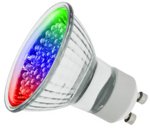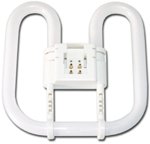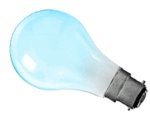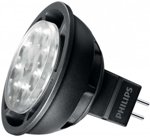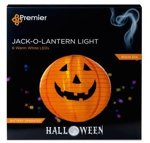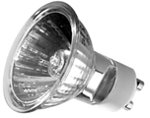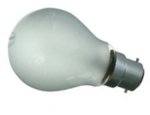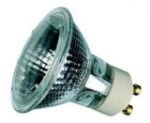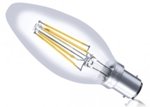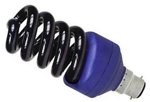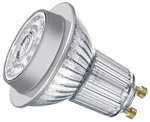Light Bulbs
It can sometimes be difficult to choose the correct light bulb for your requirements, as there are so many variations, shapes, and sizes to choose from. At BLT Direct, we’re here to make your choice easier with our comprehensive range of light bulbs, ranging from traditional Incandescent lightbulbs through to the latest LEDs, including coloured and specialist light bulbs that will help you to bring light to your home or office.
Whatever bulb you need for your fitting, you’re sure to find it in our range at BLT Direct.
Lighting our homes is something we don’t think much about, it’s an everyday convenience that we take for granted—thanks to the light bulb. The light bulbs we have in our homes are very different to the ones invented more than 150 years ago, but still have the basic premise of lighting our homes and offices.
Edison is often credited as the inventor of light bulbs, but, it was the work of a number of inventors. The first light started out with an incandescent bulb, which remained the most popular form of light bulb up until recently when LED and energy-saving alternative became much more popular.
From that early invention, there are now many more types of light bulbs to choose from, which can make finding the bulb even harder for our customers.
If you’re having trouble knowing which light bulb is right for your space, someone from our friendly sales team at BLT Direct will always be there to help you out. We’re the leading experts when it comes to light bulbs and fittings so can give you the right advice to make your next lighting decision correctly.
What light bulb types do BLT Direct stock?
At BLT, we stock a whole range of light bulbs in various shapes and sizes, so that you can always find the right bulb for the job. We even stock some rare and unusual bulbs that you probably won’t be able to find anywhere else.
Some of the most popular light bulbs that we sell to our customers include:
Traditional light bulbs in bayonet (BC bulb) or screw-in (E27 bulb) in both large and small fittings.
Incandescent bulbs, which were the most popular type of light bulb but are now starting to be phased out as they aren’t very energy-efficient.
Halogen bulbs, which are 20% more efficient than incandescent bulbs but also have started to be phased out.
Fluorescent tubes which are long life and low energy light sources - at BLT direct we offer T4 (under counter), T5, T8 and circular tubes.
Compact fluorescent lamps (CFL) which are like fluorescent tubes but smaller - these types of bulbs are also coming to the end of their life but certain types remain popular, like the GU10 style light bulb.
Light emitting diode (LED) bulbs which are the most efficient of all - ultra low energy usage and can create massive savings on energy bills when converting a house over with them.
How long do light bulbs last?
The lifetime of your light bulb will vary greatly depending on the type of bulb you’re using, and the technology the bulb uses to emit light.
As a guide, here are some of the average life spans for our most popular light bulbs:
Traditional incandescent - 1,000 hours
Halogen – 2,000 hours
Energy-saving halogen - 2,000 hours
CFL - 10,000 hours
LED - 25,000 hours
The life of a light bulb can also be affected by various factors like vibration, being exposed to excess heat or by using it with the wrong type of control gear to regulate the power. You can also reduce the life of your bulb by frequently turning it off and on (this is called switch cycles which can be found printed on the side of light bulb packaging).
What light bulbs give off the most light?
The amount of light given off by light bulbs is often mistakenly based off their wattage figures. Instead, a more accurate measurement is checking the lumen output of the lamp.
Lumens are the measure of the amount of visible light given off by a bulb that’s visible to the human eye. The higher the lumen rating, the brighter the lamp will be.
For example, a lumen level of 250lm is equivalent to 25W for an incandescent bulb, 6W for a CFL bulb and 2-3W for an LED bulb. Also, a lumen level of 2600lm is equivalent to 150W for an incandescent bulb, 42W for a CFL bulb and 20-30W for an LED bulb.
At BLT Direct, we try to make it clear by providing the lumen level on all our LED products so that our customers have a good idea of how bright they can expect their bulb to be before purchasing. If you need help with choosing the right lumen level, feel free to get in touch with our sales team.
Are all light bulbs dimmable?
No, not all light bulbs can be dimmed, it all depends on the type of bulb that you are using:
Incandescent - All dimmable
Halogen - All dimmable
Fluorescent Tubes/Compact Fluorescent Light Bulbs - dimmable when used with the correct control gear
Energy Saving CFLs - Only dimmable if specified
LEDs - Only dimmable if specified
What light bulbs are the most environmentally friendly?
If you want to get the most environmentally-friendly light bulb for your space, we recommend you purchasing LEDs. These are the newest type of light bulb, and the most energy-efficient option that you’ll find on the market today.
LED bulbs use much less energy compared to CFL’s, and even last much longer—up to 25,000 hours. A lot of LED bulbs promise a 10-year lifespan, which is based on an average daily use of 3 hours. This won’t be the case for every household and can also be affected by bulbs degrading over time and the risk of circuits failing.
Unlike CFL bulbs, LEDs will instantly brighten up your space and will be able to withstand harsh, cold temperatures without failing.
Light bulbs that use LED technology will not only bring down your energy bills but are also much more environmentally friendly when they’re compared to incandescent and CFL bulbs. These LEDs are so much better for the environment because they consume less power per unit (lumen) of light emitted—the accumulative effect of this is a reduction in the greenhouse emissions produced by power plants.
How do I dispose of light bulbs?
We recommend all our customers be extra careful when it comes to disposing of their light bulbs, as not all of them can be disposed of in the same way.
Both incandescent and halogen bulbs should be disposed of in your normal household waste, however Compact Fluorescent Bulbs and Fluorescent Tubes must be recycled safely in a designated recycling bin as they contain small amounts of mercury.
LED lights can be recycled, although you can also dispose of them in your general household waste.
Most local councils offer light bulb recycling bins at their main recycling centres, so you should be able to find one near you. Alternatively, many large stores like Homebase, Tesco and IKEA also have their own lightbulb recycling bins.
If you’re not sure of the best way to dispose of your bulbs, it’s always worth double-checking online first.


